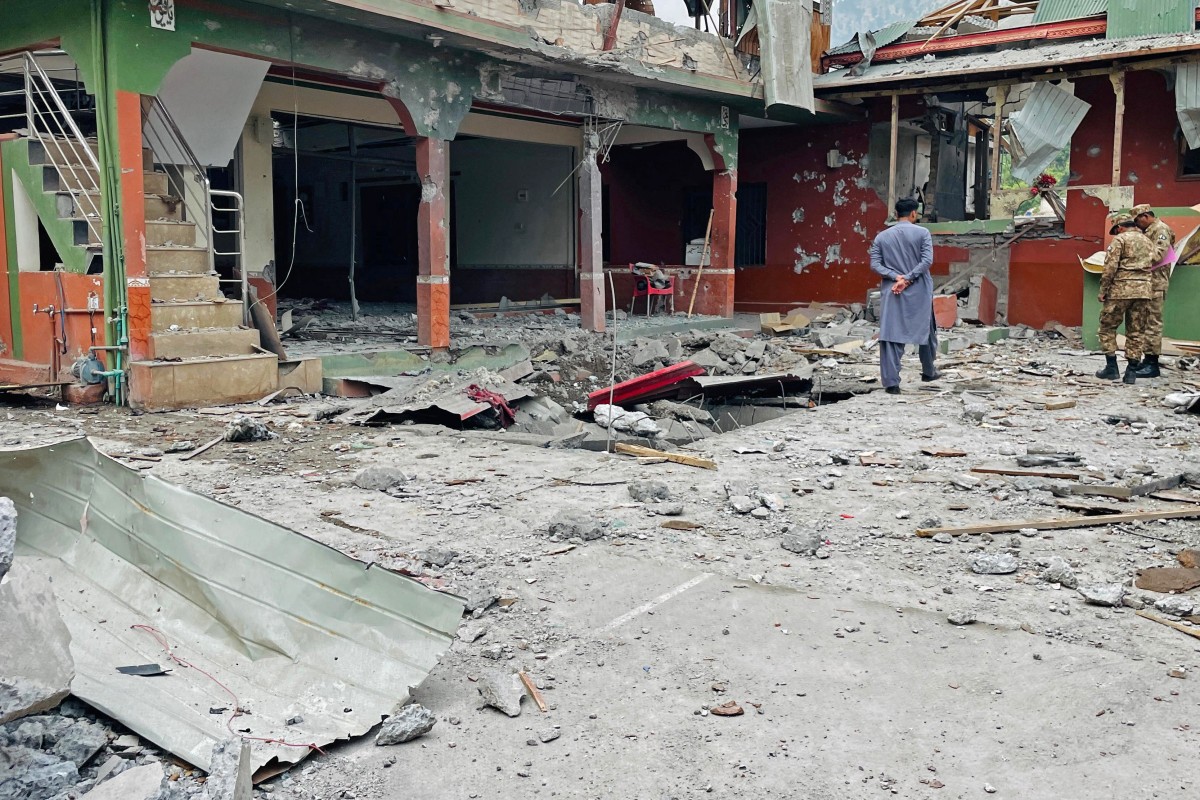
By Agence France-Presse
India and Pakistan exchanged heavy artillery fire along their contested frontier on Wednesday after New Delhi launched deadly missile strikes on its arch-rival, in the worst violence between the nuclear-armed neighbors in two decades.
At least 38 deaths were reported, with Islamabad saying 26 civilians were killed by the Indian strikes and firing along the border, and New Delhi adding at least 12 dead from Pakistani shelling.
The fighting came two weeks after New Delhi blamed Islamabad for backing an attack on the Indian-run side of disputed Kashmir.
The South Asian neighbors have fought multiple wars since they were carved out of the sub-continent at the end of British rule in 1947.
The latest violence exceeds India’s strikes in 2019, when New Delhi said it had hit “several militants” after a suicide bomber attacked an Indian security force convoy, killing 40.
The Indian army said “justice is served,” reporting nine “terrorist camps” had been destroyed, with New Delhi adding that its actions “have been focused, measured, and non-escalatory in nature.”
Pakistan Defense Minister Khawaja Muhammad Asif accused Indian Prime Minister Narendra Modi of launching the strikes to “shore up” his domestic popularity, but said Islamabad had struck back.
“The retaliation has already started,” Asif told AFP. “We won’t take long to settle the score.”
Military spokesman Ahmed Sharif Chaudhry said five Indian jets had been downed across the border.
An Indian senior security source, who asked not to be named, said three of its fighter jets had crashed on home territory.
‘Shelling raining down’
In Muzaffarabad, the main city of Pakistan-administered Kashmir, troops cordoned off streets around a mosque Islamabad said was struck, with blast marks visible on the walls of several nearby homes.
“There were terrible sounds during the night, there was panic among everyone,” said Muhammad Salman, who lives close to the mosque.
“We are moving to a safer place… we are homeless now,” added 24-year-old Tariq Mir who was hit in the leg by shrapnel.
Pakistan said 21 civilians were killed in the strikes—including four children—while five were killed by gunfire at the border.
India’s army accused Pakistan of “indiscriminate” firing across the Line of Control (LoC), the de facto border in Kashmir.
“We woke up as we heard the sound of firing”, Farooq, a man in the Indian town of Poonch, told the Press Trust of India news agency from his hospital bed, his head wrapped in a bandage.
“I saw shelling raining down.”
AFP reporters in the town saw bursts of flame as shells landed.
At least 12 people were killed and 29 others wounded in Poonch, local official Azhar Majid told AFP.
India had been widely expected to respond militarily to the April 22 attack on tourists in Indian-administered Kashmir by gunmen it said were from Pakistan-based group Lashkar-e-Taiba, a UN-designated terrorist organization.
The assault in the tourist hotspot of Pahalgam killed 26 people, mainly Hindu men.
New Delhi has blamed Islamabad for backing the attack, sparking a series of heated threats and diplomatic tit-for-tat measures.
Pakistan rejects the accusations and called for an independent probe and on Wednesday Prime Minister Shehbaz Sharif called India’s strikes a “heinous act of aggression” that would “not go unpunished.”
The two sides have exchanged nightly gunfire since April 24 along the LoC, according to the Indian army. Pakistan also said it has held two missile tests.

‘Maximum restraint’
“Escalation between India and Pakistan has already reached a larger scale than during the last major crisis in 2019, with potentially dire consequences,” International Crisis Group analyst Praveen Donthi said.
Diplomats have piled pressure on leaders to step back.
“The world cannot afford a military confrontation between India and Pakistan,” the spokesman for UN chief Antonio Guterres, Stephane Dujarric, said in a statement.
US President Donald Trump told reporters in Washington he hoped that the fighting “ends very quickly.”
US Secretary of State Marco Rubio spoke to top security officials in both New Delhi and Islamabad since the strikes and said he was monitoring the situation “closely”.
Concern poured in, including from China—a mutual neighbour of both nations—as well as from Britain, France, and Russia, while airlines have cancelled, diverted, or rerouted flights.
Rebels in Indian-administered Kashmir have waged an insurgency since 1989, seeking independence or a merger with Pakistan.
India regularly blames its neighbor for backing armed groups fighting its forces in Kashmir, a charge that Islamabad denies.
Iranian Foreign Minister Abbas Araghchi is expected in New Delhi on Wednesday, two days after a visit to Islamabad, as Tehran seeks to mediate.
